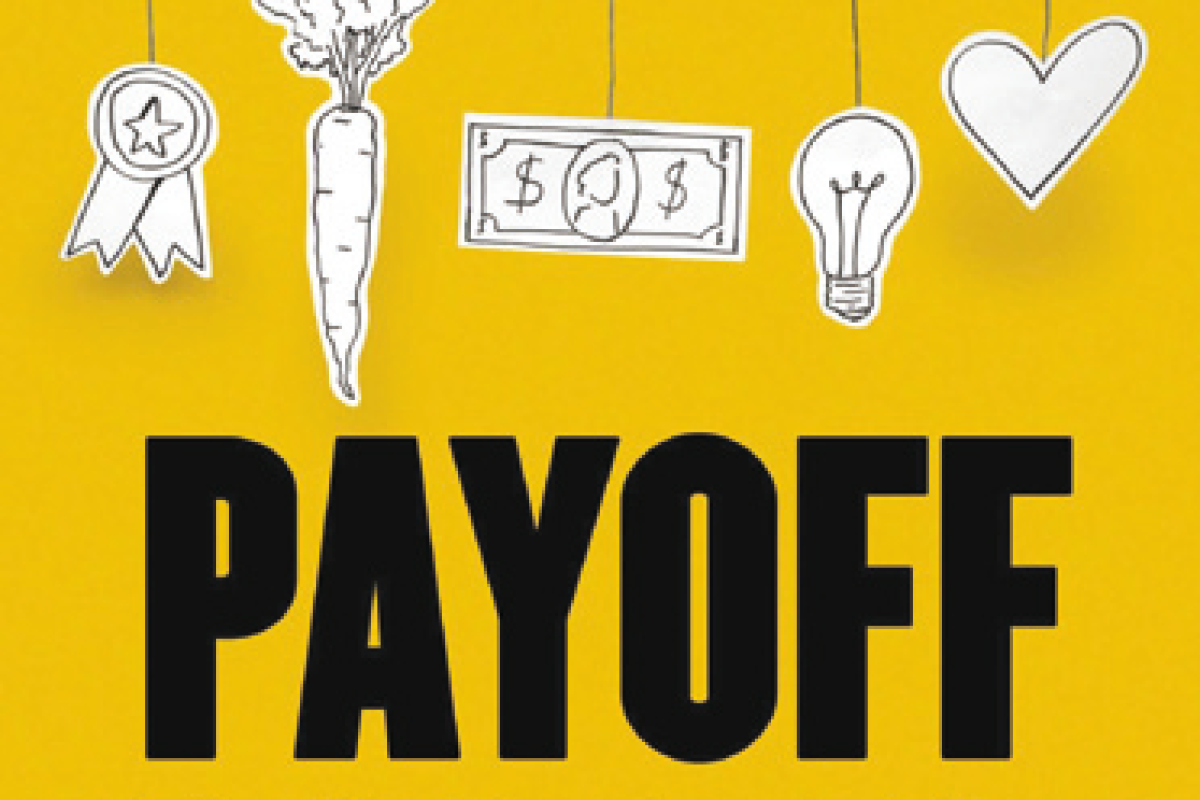When I think about the most surprising thing I learned about motivation when I was writing this book, it was this understanding of long-term motivations versus short-term motivations. In Payoff: The Hidden Logic That Shapes Our Motivations, I write a story about a sick child who I helped, and what surprised me was how much I suffered through the process of helping him but also how much I was gravitating to help him. It made me wonder about cases when we seek the things that give us satisfaction. One conclusion could be that I love suffering, but the other conclusion was about understanding this very difficult process that was so important to me. So, often we think of motivations in the short term, for example in terms of money, but long-term motivations could be things such as acknowledgement, getting a promotion, feeling connected, getting a title. But how do we shift motivation from the short term to the long term? I began to realise there were three different elements to this.
1 Tap into the inside perspective
There’s something called the outside perspective and the inside perspective, and in motivation you have both. So, in terms of ‘outside’ motivation, what would compel you to join a company? You might think about all the benefits and the bonuses, but what gets you truly engaged is not those things. I often use the example of sport – there are very different motivators to start exercising than to continue exercising. Once you start playing basketball, you’re engrossed by the competition by passing the ball. What leaders need to do is recognise the difference between outside and inside perspective and try to understand more of the inside perspective. What is it in the moment that gets people to want to push a little extra?
2 Remember the benefit of incomplete contracts
When the lawyers get involved, they always want to create contracts that cover everything, because they believe that when they leave things outside, they don’t count. Of course, there’s an advantage to complete contracts but there’s also a disadvantage. This is because if we leave anything out then we can get people who don’t care. To give you an example, consider someone who works in a hospital as a janitor. He has a very simple job description. One day, he walks someone from his bed. This is not part of his job description but we don’t want him to have a complete contract, because if he did then he wouldn’t care.
3 Consider the importance of goodwill
Goodwill is the fuel of the knowledge economy. It means you can get people to come to the office early and stay late. You want your people’s hearts and minds, but the truth is you can’t buy goodwill. You earn it by people feeling they’re part of the system. It’s hard to pay for goodwill in bonuses, but giving employees shares is a wonderful way to say ‘we’re partners’. You’re giving people a say in how the company will go in five to ten years’ time. The good news is that people want to feel they have contributed and that they are part of something. Who wants to go to work and think it’s just for the money?
We have this amazing relationship we call love and I think people should look into love and start using lessons from home life as a starting point. For example, what is the essence to how we take family/ friends/partners and get them to be so committed to each other and overcome barriers? When you get married, we don’t specify who will take out the trash – let’s just agree we’ll stay together. What do we do to create love? We put trust in other people, and we do all kinds of things that are the essence of how we, as people, function.
Payoff: The Hidden Logic That Shapes Our Motivations by Dan Ariely. Taken from Market Leader issue March 20.
